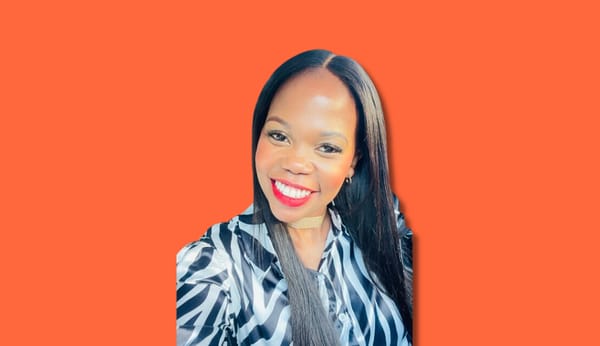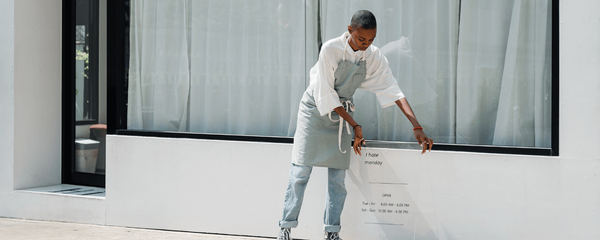Finance, like many other professions and sometimes more so, has been grappling with issues of gender equality and diversity for years. The experiences of women who have been in finance, both positive and negative, are diverse and complex. So we wanted to better understand what these experiences were, how women were dealing with them, and if there’ve been any improvements over the years. We spoke to 6 women who have worked in finance for many years, and asked them to share their challenges, changes and hopes for a more inclusive future.
These are some of the issues the women we spoke to are still dealing with, and how they're working to change it.
There's still subtle stereotyping in the workplace
Raine Parker, a seasoned CA(SA), Project Manager, Consultant and Business Developer, highlights that while strides have been made to address gender disparities in finance, unintended bias still permeates various aspects of the workplace. “Women, particularly mothers, may be subjected to preconceived notions about their commitment, availability, and capabilities. Stereotyping women into roles that don't reflect their expertise is a glaring example of how unintended bias can undermine their potential,” she says.
For instance, the expectation that a woman should naturally excel at communication often emerges as an unconscious bias. “I've experienced instances where I was asked to lead communications for projects, not because of my professional background or interest in the area, but likely due to the assumption that communication aligns more with a woman's skills,” Raine explains. This kind of pigeonholing limits opportunities for growth and reinforces gender-based expectations.
The most unfortunate aspect of this experience is that a lot of people in these environments are usually not aware of their stereotyping, and so the burden of changing the status quo and raising the issue then falls on the woman.
“I heard the other day that the first 10 minutes of a board meeting was used to discuss sport activities over the weekend, which you wouldn't get a bunch of women doing. So as a female, unless you're very much into rugby and cricket, you are not necessarily included in those types of conversation. And that's something that the men in the room will just do, you know, thinking they are shooting the breeze, but actually it's quite exclusive. I guess this is not just gender, but under racial divide as well,” Jessica du Preez, CA(SA), Group Financial Controller, highlighted. These are the kind of barriers that are less around the actual work experience, but more around society and the expectations of women.
There’s more pressure on women to excel
On the equality chat, Elsabe Tromp CA(SA), Part-Time CFO and Finance consultant explains: “I don't think it's equal, but I think it's partly to blame on both sides. I think men still do dominate in finance but women are harder on themselves and on other women when mistakes are made.”
Women tend to go with more of a cautious approach, and while it’s not a bad thing, it’s not necessarily accepted, says Elsabe. Society is just not used to it. “Men are more confident and a bit more reckless sometimes, willing to take risks if there is a chance of failure. So I think women still need to step up a bit, but also need to be open to making mistakes, give themselves a chance to back themselves a bit more and be more accepting”, she advised.
It’s hard to juggle motherhood and a career in finance
When Jessica thinks of a career in finance, it involves a very structured monthly reporting process with little flexibility in terms of shifting deadlines or pushing things out. “I think that is in part what’s stopping women from putting their hand up for the Chief Financial Officer (CFO) role – it requires long work hours when they have children”.
Raine agrees, “As a mother and a professional in finance, I've been confronted with the reality that the demands may not align well with the responsibilities of motherhood. The journey of motherhood can often be seen as a barrier to career advancement due to the perceived need for constant availability and commitment in finance roles.”
An experience Lyndall Marwick (Chief Financial Officer at Franc), flashbacked to was of an interview panel she was a part of. “I remember sitting in an interview process for people in the finance department, and the one woman was very clear that she had young children and so she needed to prioritise getting out of the office by a certain time. When she was compared to the other candidates who didn't mention their private life or their at-home life at all, she was marked negatively for having a strong conviction that she's a whole person with responsibilities at home and she's not married to her work. She wasn't hired as a result.”
The reality is that parents need to be able to transport their children to school, and look after them during the afternoons, school holidays, and when they are sick, for a start. “That kind of time commitment to childcare does not allow for full-time (40h/week) work, without lots of support (paid and unpaid family) in place. Therefore the reality of having children means, for a lot of families, one parent either works part-time or not at all, and in our society that is most likely the mother,” Lyndall explains. How do we know it's the mother? Mothers are more visible in the school environments, and when they are not visible, are made to feel guilty (by society or fellow school moms).
Such roles come bearing huge expectations and for some women, no matter what age their child may be, some family occasions and events will take priority. Jessica mentions that it’s extremely difficult, particularly in finance, to balance motherhood and career goals. “Men can easily work, put in their hours and still be seen as good husbands by just tapping in here and there. All the while, the woman’s running the house and struggling to keep up with the hours – it can take a toll on her career.” With these challenges, it’s pretty evident that juggling career goals and motherhood remains a tough battle for women in finance.
“I've definitely noticed a difference from the time when my kids were younger to now. I think for me, I always used to make sure I've got a lot of help around me to support me with childcare. In my African background, we just don't believe Mom and Dad should raise the kids,” Lelemba Phiri mentions. According to the pioneering Gender-lens Investor, Development Finance Expert and PhD Candidate, in her culture, the kids are raised by the village or the community and cousins are hired to help. “So, personally, my children were more my reason, rather than my hindrance or my excuse for not getting things done and not getting higher up the ladder,” she mentions.
A glimmer of hope: It's possible to be in finance and still have a family
For Peta Chennells, CFO at Thrive Investment Managers, achieving gender equality is about partnering with people that value the whole person so they’re not just another number on a balance sheet, or a tool to deliver on tasks. Valuing that people have families, lives and visions for themselves outside of work when you hire them – and are not just people that you pay to work 40 hours a week – is a valuable perspective to have as a leader. If you are an entrepreneur, you want to set a culture that has acceptance for parents that want to be fully present in their lives, their family and their friends’ lives as well. “In my space, it’s culturally acceptable to leave the workstation earlier than what is expected because of family commitments and I’ve found that quite often, it is people at the top that are doing that, and that it filters through the workplace,” Peta mentions.
Lyndall Marwick explains her experience at Franc: “Working in a company where senior leadership acknowledge they are people with lives outside of work will impact the culture for all in the company. For example, our CEO and Co-Founder, Thomas, requested we shift the time of a recurring meeting to accommodate him going to his child's swimming lessons in the middle of the day. It seems simple, but that is a message to all who work at Franc that we are entitled to have lives outside of work. At our quarterly board meetings the men on the leadership team, not the women, take the meeting minutes. If an example of unconscious bias towards women comes up in a meeting, I feel safe in raising this, my opinions are taken seriously and steps are taken to remedy the bias.”
There’s no secret that certain careers, like in finance, technology and mining, have traditionally been known to be male-dominated and – in some cases – white too. In Lelemba’s point of view, this is because of various factors, from the amount of time it takes you to qualify to get into these spaces, to the demands on time when you're working in these roles. These roles are notorious for long hours, particularly if you take the traditional route. So it can be quite disruptive if you have to juggle it with managing a family.
However, that’s been changing over the years and that's because we’re getting more women choosing to work in these roles, and those women are a lot more visible than they used to be. This, in turn, starts to change the picture overall as women lead differently. We're starting to see many more role models showing that it's possible to be in these roles and still have a family.
“The second and more recent change was the shift in work dynamics sparked by the pandemic, because now we've got a lot more flexible hours and ways of working. This means you can work from home and potentially juggle your home responsibilities slightly better,” Lelemba concludes.
Raine comments: “It's important to recognise that progress in achieving gender equality requires a collective effort. There is hope on the horizon. The younger generation, characterised by a different approach to work-life balance and a heightened awareness of gender issues, could reshape the dynamics in finance. These younger professionals prioritise a balanced lifestyle and value diversity, which could lead to more equitable workplaces in the future.”
We’re getting somewhere
The experiences of women in finance are multifaceted and evolving. While there seem to be many challenges, there is also hope for change. There are changing attitudes towards gender dynamics, increasing numbers of female role models, and a growing emphasis on flexible work arrangements that is driving positive change. By continuing these conversations, advocating louder for equal opportunities, and fostering supportive company cultures, finance could well be on the right path toward greater diversity and inclusion.










